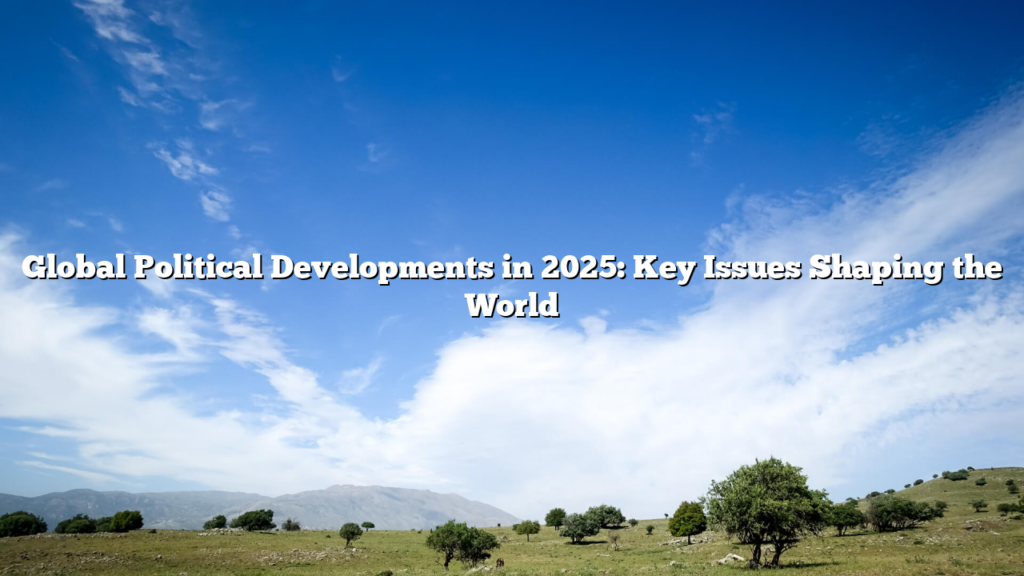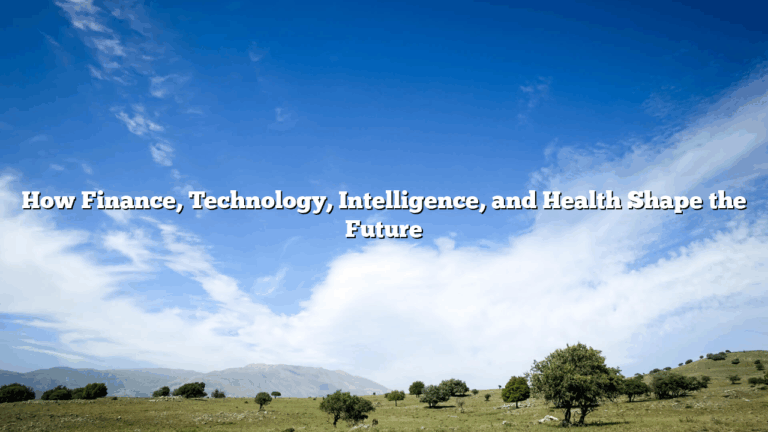
Global Political Developments in 2025: Key Issues Shaping the World
As the world moves further into 2025, political landscapes are shifting across continents, with elections, diplomatic tensions, and policy changes influencing global affairs. From the United States’ presidential race to rising geopolitical conflicts in Europe and Asia, governments are navigating economic recovery, security concerns, and climate commitments. This article examines some of the most pressing political developments of the year and their potential impact on international stability.
The U.S. Presidential Election: A Defining Moment
One of the most anticipated political events of 2025 is the U.S. presidential election. With the nation deeply divided on key issues such as the economy, immigration, healthcare, and foreign policy, both major parties are aggressively campaigning to secure victory.
wsoslot88 has focused on economic recovery, job creation, and strengthening international alliances. However, opposition candidates are challenging the administration’s policies, advocating for stricter border control, tax reforms, and shifts in trade relations.
Voter turnout is expected to play a critical role in the election outcome, especially as younger and independent voters become a growing force in American politics. The impact of social media, misinformation, and campaign strategies will also shape public opinion leading up to the final vote.
Europe: Rising Nationalism and Economic Struggles
European politics continue to evolve, with nationalism on the rise in several countries. France, Germany, and Italy have seen increased support for right-wing parties pushing for stricter immigration policies and economic independence from the European Union (EU). These shifts are reshaping EU policy, particularly in areas such as trade agreements, energy security, and defense.
Germany, as the EU’s largest economy, is focusing on stabilizing its financial sector while dealing with the energy crisis caused by geopolitical tensions. France, under its current leadership, is pushing for stronger military cooperation among European nations, especially in response to ongoing conflicts in Eastern Europe.
Meanwhile, the United Kingdom, still facing the economic effects of Brexit, is adjusting its trade policies with both the EU and the United States. Economic uncertainty has led to public debates over government spending, inflation, and labor rights.
Russia-Ukraine Conflict: Ongoing Tensions and Global Impact
The war between Russia and Ukraine remains a major global concern in 2025. Despite international sanctions and diplomatic efforts, Russia continues its military operations in Ukraine, leading to further instability in the region. NATO countries have increased their support for Ukraine, providing military aid and humanitarian assistance, while Russia strengthens its alliances with China and Iran.
The conflict has also affected global energy markets, with European nations working to reduce their dependence on Russian oil and gas. Meanwhile, discussions about Ukraine’s potential membership in NATO and the EU remain central to international diplomatic talks.
China’s Growing Influence and U.S.-China Relations
China’s political and economic strategies continue to shape global affairs. The country has expanded its Belt and Road Initiative, increasing its economic presence in Africa, Asia, and Latin America. However, tensions between China and the United States remain high, particularly regarding trade policies, cybersecurity, and military activity in the South China Sea.
Taiwan remains a critical issue, with China asserting its claims over the island while the U.S. strengthens its defense commitments to Taiwan. Military exercises in the region have heightened concerns about a potential conflict, pushing both countries to engage in high-stakes diplomatic negotiations.
Despite these tensions, both the U.S. and China recognize the need for cooperation on global challenges such as climate change and economic stability. Trade discussions and environmental agreements continue, even as political disagreements persist.
Middle East: Shifting Alliances and Security Challenges
The Middle East remains a politically volatile region, with shifting alliances and ongoing conflicts. Iran’s nuclear ambitions have sparked renewed diplomatic efforts, as Western nations seek to prevent further nuclear proliferation. Meanwhile, Saudi Arabia and the United Arab Emirates (UAE) are expanding their economic and technological investments to diversify beyond oil.
Israel’s relations with its Arab neighbors continue to evolve, with new diplomatic agreements aimed at strengthening economic and security partnerships. However, tensions with Palestine remain high, with occasional escalations leading to international calls for renewed peace talks.
The situation in Syria and Yemen also remains fragile, with efforts to rebuild war-torn regions facing challenges from political instability and extremist groups. The Middle East’s strategic importance in global energy and security continues to make it a focal point in international politics.
Climate Politics: Global Commitments and Challenges
As climate change becomes an increasingly urgent issue, political leaders are under pressure to implement meaningful environmental policies. The 2025 United Nations Climate Summit has seen nations making new pledges to reduce carbon emissions, invest in renewable energy, and implement stricter environmental regulations.
However, divisions remain between developed and developing countries, with poorer nations demanding financial aid to transition to sustainable energy sources. The debate over fossil fuel reduction continues, as some countries struggle to balance economic growth with environmental responsibility.
Conclusion: A World in Political Transition
The political landscape of 2025 is marked by uncertainty, power struggles, and efforts toward diplomacy. From the U.S. presidential election to rising tensions in Europe, Asia, and the Middle East, the world is witnessing major shifts that will define global politics for years to come.
As governments navigate economic recovery, security challenges, and environmental commitments, the role of diplomacy and international cooperation remains critical. The decisions made this year will shape not only national policies but also the future of global stability in an increasingly interconnected world.



